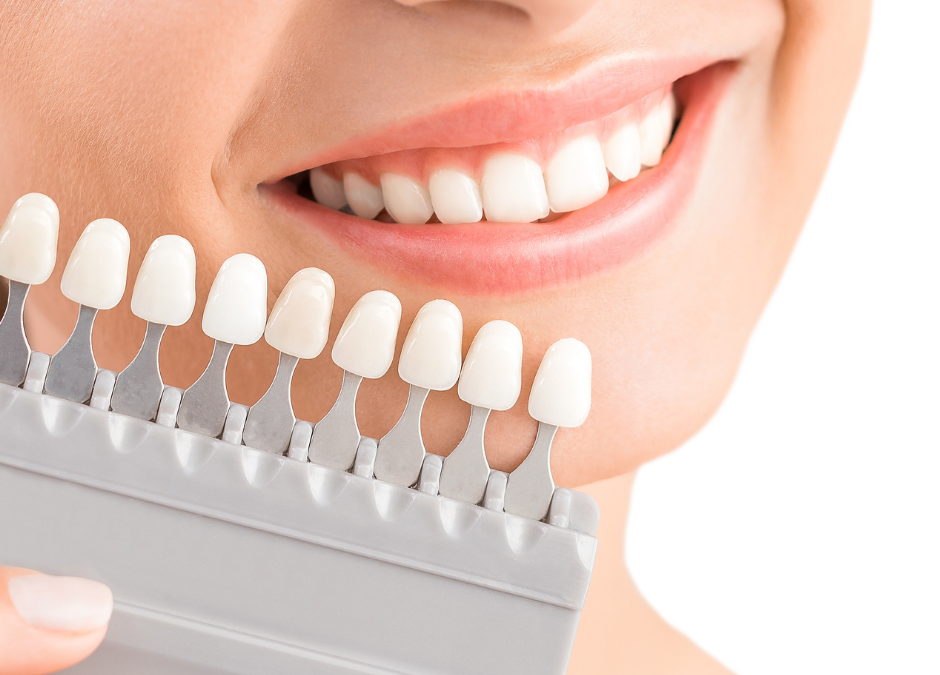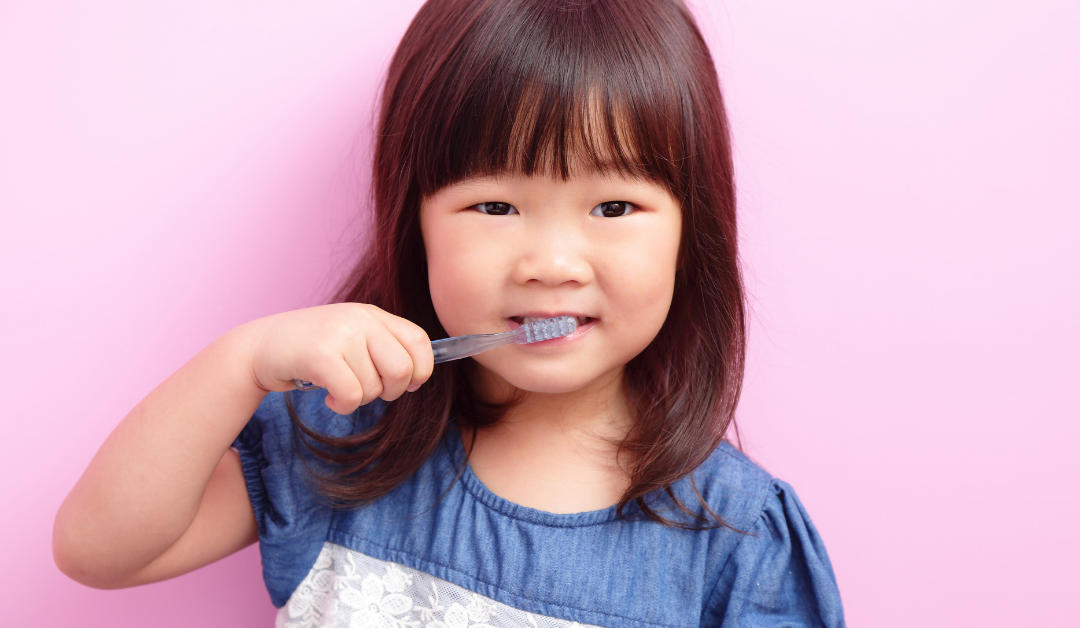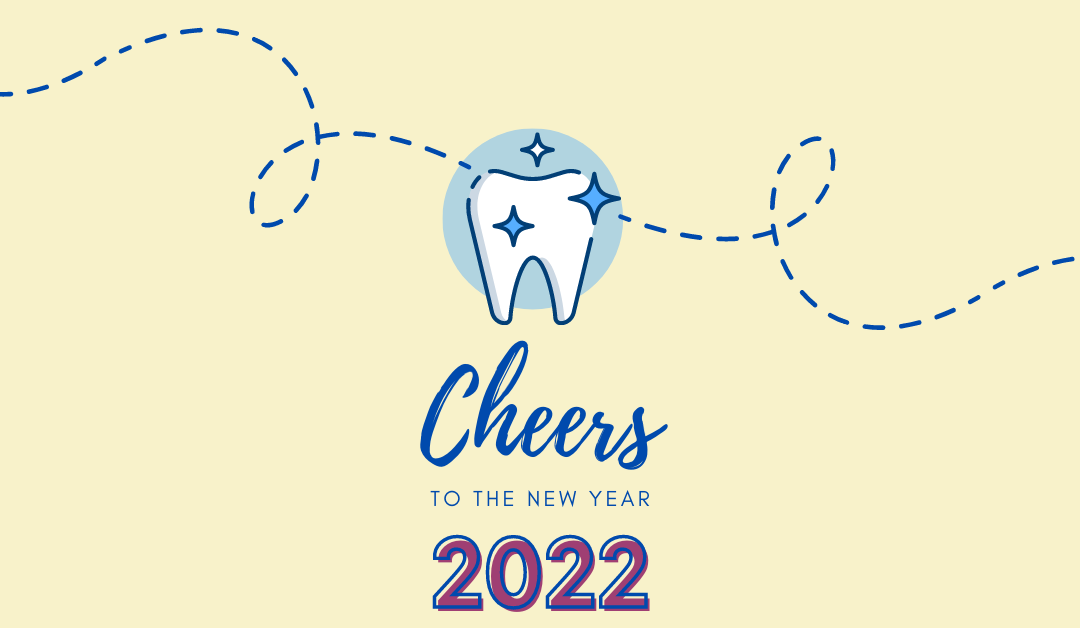
Aug 11, 2022
Summer is a time to kick back, relax, and enjoy, but it’s still important to keep up with your oral health routine, even during the hottest days. Here are some tips to keep your pearly whites in tiptop shape during the dog days of summer and beyond.
1) Skip the Sugary Drinks
Instead of reaching for a sugary drink to quench your thirst, stick to beverages with no added sugar whenever possible. Skip the soda (not only do sodas have high sugar content, but the carbonation is also acidic and can harm tooth enamel). While sports drinks contain electrolytes, which are helpful in preventing dehydration, did you know that they also contain more than 30 grams of sugar and 250 grams of sodium? Stick to sugar-free versions instead.
2) Drink More Water
A good rule of thumb is to drink half your body weight in ounces of water. Some ideas to help you reach your water goal are to find an insulated, refillable water bottle you like, infuse your water with lemon or use flavor drops for a little pizazz. Drinking is not only good for your metabolism, it’s also good for your teeth!
3) Prevent Tooth Discoloration
Many of us love an iced coffee or tea on a hot day but if you drink them frequently, there is a chance this can lead to tooth discoloration. Other summer favorites like cola, red wine, grape juice, cranberry juice, and blueberries are also common causes of tooth staining.
There are a few things you can do to keep your smile whiter, however, such as adding milk to your iced coffees and drinking out of a straw. It is also helpful to drink a glass of water after consuming one of these foods or beverages or rinse with a mouthwash. If you are concerned about the stains you already have, we’d be happy to discuss your options for teeth whitening. We offer both in-office whitening and at-home options and Dr. Brunacini or Dr. Karagiorgos would be happy to recommend an option that is best for you.
4) Don’t Bite the Ice
We know how satisfying it is to chew the ice left in the bottom of your drink, but this is a common cause of tooth breakage. If you are looking for a safer alternative, try adding crushed ice to your drinks instead. Try mixing ice with your beverage of choice or some fresh fruit in a blender and until smooth.
5) Protect your lips with SPF Lip Balm
Any time you are outside enjoying the sun, remember to wear sunscreen on any exposed areas, including your lips! Choose a lip balm with an SPF of at least 30, and reapply often, especially after swimming or drinking.
6) Keep Your Regular Hygiene Appointments
We know summer gets busy, but the best way to ensure good oral health in any season is to keep your regular hygiene appointments. If you have any questions about your oral health or need to schedule an appointment, call us today at 207.781.5900.

May 13, 2022
The process of getting a crown just became a whole lot easier for our patients! The team at Falmouth Dental Arts is excited to offer same-day crowns, also known as Dentistry Powered by CEREC®—(Chairside Economical Restoration of Esthetic Ceramics). With this advanced technology, we can now provide same-day crowns and other dental restorations right in our Falmouth, Maine dental office. The CEREC® Primemill, developed by Dentsply Sirona, is a state-of-the-art piece of equipment that allows us to mill, bake, and stain your new crown all in one visit – so there is no more need for a temporary crown. Because of this exciting upgrade, getting a crown will now be a faster and more comfortable experience. The cost of same-day crowns is also on par with traditional crowns. Always seeking to expand our knowledge in the field, our team has participated in extensive training to be able to offer this convenient new option to our patients. Let’s take a deeper look at what this technology means for you, our patients.
Benefits of Same-Day Crowns
We are pleased to be one of just a handful of family dentistry practices in the Portland, Maine area to offer same-day crowns, as they offer many benefits for our patients:
- Less time at the dentist
- A permanent solution in just one visit – no need for temporary crowns
- Minimally invasive
- Highly precise and custom-made for an optimal fit
- Natural-looking
- Made from safe material
- Durable and long-lasting
How Do CEREC® Dental Crowns Work?
This new technology is exciting for many reasons, one of them being how much easier it will make dental restoration for our patients. The same-day crown procedure is a simple four-step process:
1) Scan
We use digital scans to create a 3D model of your teeth. This is an easier process than traditional impressions, which means less discomfort for you.
2) Design
We use CEREC® Software to design your customized restoration right here in the office. The designs are extremely accurate and can be created very quickly.
3) Manufacture
Next, the design is sent to the milling machine to create your custom crown. The process is very precise and allows us to create a very smooth and realistic result in just one visit.
4) Heat
Your custom ceramic dental crown is then sintered (baked) and glazed using a special sintering furnace made just for dental restorations.
Like any dental restoration, your new ceramic crown may be sensitive for the first few days after your visit. If you have any questions about same-day crowns, would like to make an appointment, or want to become a new patient, give us a call, or fill out a new patient form today!

Feb 4, 2022
February is National Children’s Dental Health Month, which makes now the perfect time to review how to care for your little or big kids’ teeth at home. This month-long awareness campaign was created by the American Dental Association to bring together dental professionals to promote the benefits of children’s oral health. Here at Falmouth Dental Arts, we believe that children should be actively involved with caring for their own teeth. Good oral habits start early and it’s important to create positive memories for your little ones about their dental experience. Our compassionate team of dental professionals is always happy to spend time educating both parents and children on good dental health habits such as scheduling check-ups and creating a daily flossing and brushing routine. Read on for a few of our favorite tips!
Tips for Babies and Toddlers
- At the first sign of a new tooth, use an infant toothbrush with a pea-sized amount of toothpaste and gently brush those mini pearly whites. Look for toothpaste that is approved by the American Dental Association for use with babies – if you need product recommendations, let us know!
- When your baby has two teeth side-by-side (usually the bottom center two teeth), you can begin flossing between them.
- Schedule your babies’ first dental check-up by 12 months of age. You can expect that during the first visit we will introduce your child to our office, the dental chair, and any tools and products that we will be using during a routine cleaning appointment. We start by simply taking a look into your child’s mouth to get them accustomed to this routine while we assess their teeth and gums. Our warm and friendly professional team is skilled at taking each step at a pace that is comfortable for your child. Your child’s first visit may also include a fluoride treatment, depending on his or her age, needs, and readiness.
Tips for Big Kids
- Continue to supervise your child’s brushing habits up to age 8 as they may not always brush long enough and may need to be reminded not to swallow the toothpaste. Replace his or her toothbrush every 3-4 months with a theme or color of their choosing. Reinforce that they should be brushing twice a day, for two minutes each time.
- Teach your child or teen about the importance of both hydration and good nutrition. Explain why healthy snacks like fruits and veggies as well as calcium-rich foods like yogurt and cheese are good for growing teeth and bones.
- Make sure your big kid flosses and swishes with a fluoride rinse once per day.
- Schedule your child’s dental appointments two times per year or more, if recommended. Dr. Brunacini and Dr. Karagiorgos love seeing the next generation of smiles coming through the office doors and helping them to establish healthy dental habits early on!
If you have any questions at all about your child’s dental health or need to schedule an appointment, give us a call at 207.781.5900.

Jan 11, 2022
Wintertime in Maine can feel like the longest of the four seasons, but luckily there are a variety of sports and recreational activities for adults and kids to choose from to keep busy during the colder months. Whether you are competing on a winter sports team or getting outside for some fun and fresh air, it is important to take precautions to keep yourself safe. This includes wearing protective gear when necessary and knowing what to do in the case of a dental injury. If you have any questions about how we can help you protect your smile this winter, feel free to talk to your team at Falmouth Dental Arts, as we are your partners in dental health. In the meantime, read more about winter activities and dental safety below.
Protective Gear
In addition to wearing a helmet to protect your head, wearing a mouthguard is your first line of defense against dental injuries. We support the American Dental Association’s recommendation that mouthguards be worn when participating in the following list of winter sports and activities, even if they are not required:
- Wrestling
- Basketball
- Ice Hockey
- All Collision, Contact, and Combat Sports
- Downhill Skiing and Snowboarding
- Ice Skating
- Sledding
Types of Mouthguards
Make sure to choose a mouthguard that is approved by the ADA and designed for your specific sport or activity. There are a few different types of mouthguards you can choose from:
- Stock Mouthguards – Stock mouthguards come pre-formed and ready-to-wear in various sizes. Stock mouthguards tend to be inexpensive but do not offer a custom fit.
- Boil and Bite Mouthguards – These mouthguards are softened in hot water before wearing and are placed in your mouth to create an impression of your teeth and bite before they harden.
- Mouthguards for Braces – It is important to choose a mouthguard that is designed specifically for those who wear braces.
Have questions? Talk to us about selecting the mouthguard that is best for you. We are here to help!
Caring for Your Mouthguard
Store your mouthguards in a case to keep them protected from bacteria, pets, and loss. Clean them regularly with toothpaste, mild soap, or baking soda. Rinse thoroughly and dry before storing them in their case. Replace them as soon as they get torn, thin from wear, or no longer fit well.
What to Do if You’re Injured
If a dental injury does occur, call our office right away at 207.781.5900 to schedule an appointment. Our team of compassionate dental professionals will help you with a treatment plan and coordinate with your other health care professionals as needed. If it is outside of our regular business hours, when you call our office line you will be given the option to get in touch with Dr. Brunacini or Dr. Karagiorgos. In the event of a head injury or any other type of serious injury, please contact your physician as soon as possible or go to your nearest emergency room.

Jan 10, 2022
The new year brings an excellent opportunity to update your health and wellness habits. At Falmouth Dental Arts we often talk about how part of your overall wellness is good oral health, so this year, why not commit to having the healthiest smile possible, starting with this list of dental health resolutions:
1) Get a Fresh Start with a New Toothbrush
Ideally, toothbrushes should be replaced every 3-4 months, but the new year is also a great time to start fresh by replacing all the toothbrushes in your household. We recommend electric toothbrushes to our patients; they provide a superior clean and help keep your gums healthy. If you prefer a traditional toothbrush, look for one with soft or ultra-soft bristles. Choose a toothpaste that is ADA-approved and contains fluoride.
2) Brush Up on Your Technique
Are your brushing skills up to speed? Proper technique includes brushing gently for 2-3 minutes, twice a day, holding your toothbrush at a 45-degree angle to your gum line. Make sure to brush every surface of your teeth, both front and back. Our team of hygienists is always happy to demonstrate “best brushing techniques” so feel free to ask at your next appointment!
3) Add Flossing to Your Routine
If you are skipping the flossing step in your dental routine, this is the perfect time to make a positive change. Start with once a week and then build up to a daily flossing habit. Also, if you find that you often forget to floss at night, try a different time of day or set a reminder on your phone. Using water flossers or regular floss will help clean food and plaque from between your teeth, helping to keep your gums healthy.
4) Use a Mouthwash
Studies show that using mouthwash on a regular basis is beneficial to your mouth, teeth, and gums. Rinsing with mouthwash gets to the places that toothbrushes can’t, cleans your whole mouth (including your tongue), and freshens your breath! Our hygienists recommend Oxyfresh mouth rinse, an alcohol and dye free formula flavored with essential oils.
5) Drink More Water
Drinking 6-8 glasses of water a day is good for your entire body, and your teeth are no exception. Water is by far the healthiest beverage choice, and drinking a glass after every meal is a great way to rinse away bacteria and help prevent tooth decay.
6) Kick the Tobacco Habit
Ring in the new year by resolving to quit using tobacco products – both smoking and chewing. Tobacco use is linked to oral cancer, as well as tooth decay and gum problems. For help with quitting smoking, consult the Center for Disease Control’s Tips From Former Smokers or talk to our team for additional ideas and support.
7) Upgrade Your Smile
In keeping with a “new year, new you” theme, why not treat yourself to the smile you’ve always wanted with cosmetic dentistry? We offer teeth whitening, bonding, Invisalign, and more – just ask! If you have been delaying dental work, like fillings, crowns, or other repairs because you have maxed out your dental insurance plan, the new year usually resets your maximum benefits back to zero, meaning that your full allowance should now be available again. For any questions about your dental insurance coverage, feel free to give us a call at 207.781.5900 and we would be happy to look into this for you.
8) An Ounce of Prevention
Dr. Brunacini and Dr. Karagiorgos, in conjunction with our team of compassionate dental professionals, will help you to develop a hygiene schedule at home, as well as in our office. Routine hygiene visits that include digital x-rays and cleanings are the best way to address issues before they arise and to maintain your dental health in the new year and beyond!
Apr 20, 2021
April is Oral Cancer Awareness Month, which represents an opportunity for dental professionals to raise awareness about early detection and treatment for their patients. According to the Oral Cancer Foundation, although an estimated 54,000 new cases of oral cancer will be diagnosed this year, “Regular oral cancer examinations performed by your oral health professional remain the best method for detecting oral cancer in its early stages.” At Falmouth Dental Arts, we’ve had a long-standing commitment to oral cancer screening for our patients. However, you may have some questions about oral cancer or how Dr. Brunacini, Dr. Karagiorgos, and the hygienists perform screenings during your appointment. We recently posted a video on our Facebook page, and wanted to provide some more basic information about oral cancer and our screening procedures.
Some of the risk factors for oral cancer include:
- Being over the age of 40.
- Tobacco use – heavy cigarette use (especially over the age of 50) has been linked to a higher incidence of oral cancer.
- Alcohol use – heavy drinkers of alcohol are more likely to develop oral cancer than nondrinkers.
- Sun exposure – lip cancers are associated with excessive sun exposure and a failure to use sunscreen.
- Human Papillomavirus (HPV) – although HPV is an extremely common virus that will usually clear on its own, a small percentage of those with HPV will go on to develop oral cancers. Men are more likely than women to develop oral cancer as a result of HPV. A vaccine is available (up to age 45), which prevents many strains of HPV, including those which increase the risk for oral cancers.
Warning Signs of Oral Cancer
Patients should let us know if they see any white patches in the mouth or gums or increased bleeding, as these can sometimes be signs of oral cancer. A good rule of thumb is, if you notice any recent changes to your mouth, teeth or gums, or experience any pain or tenderness, it is always a good idea to let us know. There is no such thing as a silly question!
Screening and Early Detection
Oral cancer screening is an important step in identifying cancer as soon as possible. When treated early, oral cancer has an estimated 80-90% survival rate. Regular dental care is a first line of defense against oral cancer. As your dental care partners, we are an essential part of your healthcare team, and see many of our patients at least twice a year!
What to Expect from Your Oral Cancer Screening
We screen our patients for oral cancer at every hygiene appointment. Our screening methods typically include a simple visual exam of the soft tissues of the mouth. We will examine the gum tissue, lips, cheeks, and tongue. We will also palpate (gently press on) areas of the face and neck to check for any nodules or lumps. If there is an area of concern, we may offer to do a VELscope screening. VELscope is a safe, non-invasive early detection screening device that emits a blue light that quickly allows our clinicians to identify abnormal cells before they are visible to the naked eye. The graphic below demonstrates the difference between healthy cells (Normal Epithelial Cells) and abnormal cells (Abnormal or Dysplastic Epithelial Cells), that become visible under the Blue Excitation Light.

If we have any reason for concern based on our visual exam and screening, the next step would be a referral to an oral surgeon for additional consultation. An oral surgeon may decide to perform a biopsy of the area for further evaluation. Most of the time, a biopsy will rule out oral cancer. However, if the biopsy is positive for precancerous or cancerous cells, additional treatment may be necessary. Throughout the evaluation and referral process, we will remain involved every step of the way to provide support and follow-up care. If you have any questions or concerns, please feel free to contact us, as we’re here to help!
Check out our new website – its new features are sure to make you smile!






